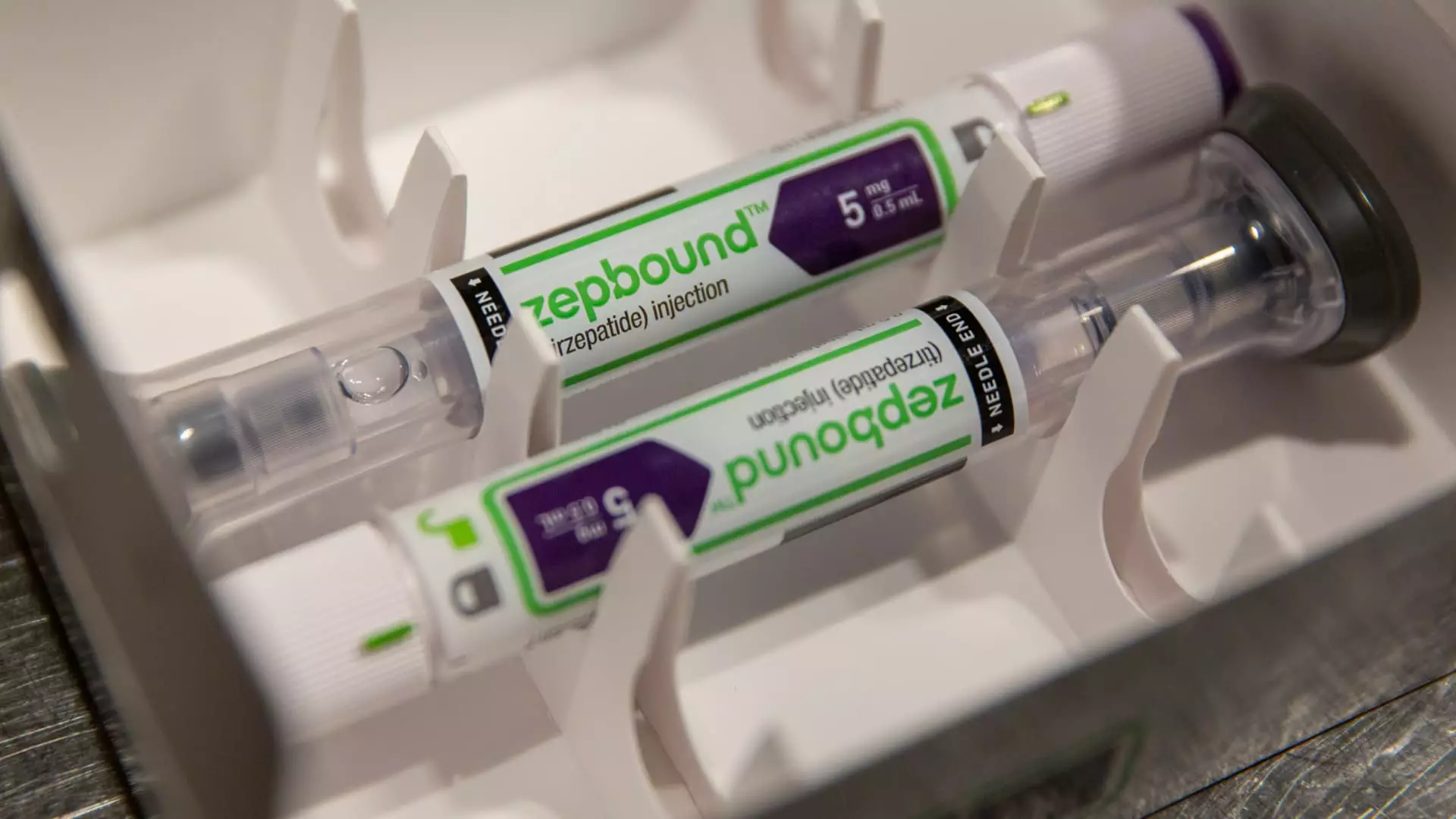Eli Lilly’s groundbreaking weight loss drug, Zepbound, has shown remarkable benefits in patients suffering from heart failure and obesity, marking a significant advancement in the pharmaceutical industry. The late-stage trial data released by the company unveils the profound impact of Zepbound beyond its intended purpose of weight loss and blood sugar regulation.
The findings from the phase three trial reveal that patients who were administered Zepbound experienced a 38% decrease in the likelihood of hospitalization or death due to heart complications, compared to those who received a placebo. Moreover, these patients were also less dependent on increasing their heart failure medication, indicating a positive influence on their overall health and well-being.
Notably, Zepbound not only improved heart failure symptoms and physical limitations but also demonstrated a significant enhancement in the quality of life for patients with heart failure with preserved ejection fraction (HFpEF) and obesity. This condition, characterized by the heart’s inability to adequately pump blood to meet the body’s demands, imposes a substantial burden on individuals, affecting their daily routines and activities.
Statistics reveal that approximately 6.7 million adults aged 20 and above suffer from heart failure in the United States, with HFpEF accounting for nearly half of all heart failure cases. Shockingly, almost 60% of these patients also struggle with obesity, underscoring the urgent need for effective treatment options such as Zepbound.
Safety and Efficacy of Zepbound
The safety profile of Zepbound remains consistent with previous trials, with gastrointestinal issues such as nausea and diarrhea being the most common side effects reported. However, these effects were generally mild to moderate in severity, highlighting the drug’s overall tolerability and safety for patients.
While Eli Lilly’s Zepbound has showcased remarkable progress in treating heart failure and obesity, rival companies like Novo Nordisk have also made significant strides in this space. Novo Nordisk’s weight loss drug, Wegovy, has garnered FDA approval for reducing the risk of serious heart complications, presenting a formidable competition for Zepbound.
Both Eli Lilly and Novo Nordisk are actively exploring the potential of their respective drugs in addressing other conditions such as chronic kidney disease and fatty liver disease. With Zepbound targeting both the GLP-1 and GIP hormone receptors, it offers a unique advantage over competitors like Wegovy, which focus solely on the GLP-1 pathway.
Eli Lilly’s Zepbound stands at the forefront of innovative treatments for heart failure and obesity, heralding a new era of personalized medicine and improved patient outcomes. As further research and development continue, the transformative impact of Zepbound in reshaping healthcare paradigms cannot be understated.

